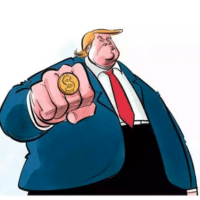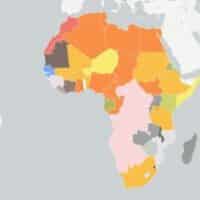-
Trump wants to sell citizenship to rich people. Take if from other countries-it’s a bad idea
Citizenship by investment schemes drive up housing prices and do little to drive economic growth.
-
How U.S. plans to bleed Europe dry while waging war on China
The theatrical events of the previous week between Volodymyr Zelensky, Donald Trump, and JD Vance have been grist for all manner of bourgeois media lies designed to obfuscate events.
-
Trump’s policy toward Latin America: Even anti-Communist Zealots in Miami don’t like it
The Trump administration’s volatility on foreign policy reveals internal divisions within Trumpism. But when threats and populism lose their momentum, the anti-communist hawks may get their way.
-
Why we need to stop capitalism’s runaway train: Interview with Ian Angus
Michael Lavalette spoke to leading ecosocialist Ian Angus about capitalisms’ ecocide, Trump and what we need to do stop global heating.
-
The Trump administration is trying to fire the ‘backbone’ of wildland firefighting
Last month’s terminations cut employees who serve critical support roles on fires.
-
Against Žižek’s Pessimism: Hope, Will, and the Dialectics of Liberation
Slavoj Žižek, one of the Western thinkers who is familiar with Marxist terminology, published an article in Philosophy Salon on January 27, 2025, entitled “Why a Communist Must Assume that Life is Hell.”
-
The fog of class war
A class consciousness among the working masses, one that takes the issue of race seriously, is critical at this moment. Still, the democrats are working to disrupt this effort to organize against the capitalist elite.
-
Revolt of the rich: Wealthy elites have waged a fifty year class war—and won
The 2024 election between Kamala Harris and Donald Trump makes clear that the U.S. has two right-wing parties and no effective left-wing opposition.
-
Exposing the big con: The false promise of Artificial Intelligence
The leading big tech companies are working hard to sell Artificial Intelligence (AI) as the gateway to a future of plenty for all.
-
Harry Magdoff Memorial Library: The Hidden Library of Marx, Lenin, and Mao in Kathmandu
In the basement of Helping Hands Hospital in Kathmandu, Nepal, there is a meeting room. Its left and right sides are lined with stacks of large books, some with torn covers. These are rare books about Marx, Lenin, Stalin, and others. They sit like prisoners, yearning for readers to set them free. The place is known as Harry Magdoff Memorial Library.
-
The empire rebrands
The larger rebrand underway is seeing elite “reconciliation” under Trump and plutocrats line up behind the repackaging from a “woke” empire to a more old-fashioned version focused on race, religion and more brazen exploitation.
-
The empire at its most honest
President Donald Trump has shared a shockingly awful AI-generated music video envisioning a future Gaza.
-
Plundering Africa–Income deflation and unequal ecological exchange under structural adjustment programmes
Presenting new research, Dylan Sullivan and Jason Hickel mount a devastating critique of the impact of structural adjustment in Africa in the 1980s and 1990s. Drawing on recent data on Africa’s material resource use, Sullivan and Hickel show how during this period structural adjustment programmes led to a significant increase in ‘unequal ecological exchange’, a process whereby African countries were compelled to export more materials, energy, and other resources than they received in imports. The difference between the two, Sullivan and Hickel argue, represented a transfer of real tangible materials from Africa to the capitalist world economy, for free.
-
Imperialism’s revival strategy
The Trump strategy for the revival of imperialism amounts to having one’s cake and eating it too.
-
The House Republicans’ plan to cut Medicaid to pay for tax cuts for the rich would slash incomes for the bottom 40%
The clearest legislative priority of the Trump administration and the Republican-led Congress is to keep taxes low for the richest households and corporations.
-
Specter of stagflation spooks Wall Street
On Friday, February 21, all the major U.S. stock indices fell.
-
The worldwide assault on working people
The official hope is that the workers’ bargaining strength gets sufficiently lowered by having greater unemployment so that they cannot bargain for higher money wages to compensate for the price-rise, because of which inflation would eventually peter out.
-
F*ck Big Book
The ‘Big Five’ publishing houses wield enormous global power, controlling 80% of the English-language trade publishing market.
-
Trump’s tariffs will not restore American manufacturing
The decline in manufacturing jobs is common to most developed economies and is not unique to the U.S. Further, Donald Trump is nothing if not delusional, and his tariffs will only damage both the U.S. economy and others as well.
-
NYC real estate expo promoting sale of ‘stolen land’ in Palestine descends into violence
Real estate event organized by company promoting land sales in illegal Israeli settlements in West Bank turns violent.


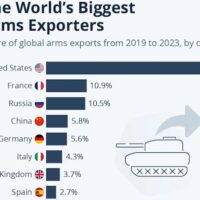

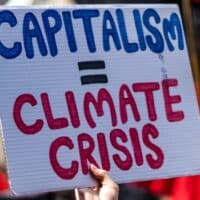
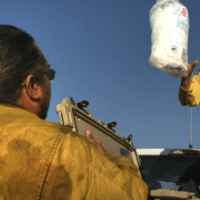


![[Source: the comicnews.com]](https://mronline.org/wp-content/uploads/2025/03/Screenshot-2025-03-10-at-42402 PM-200x200.png)


